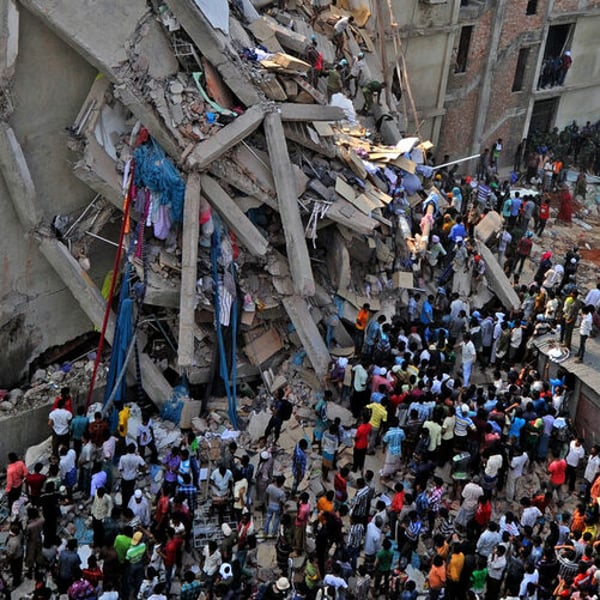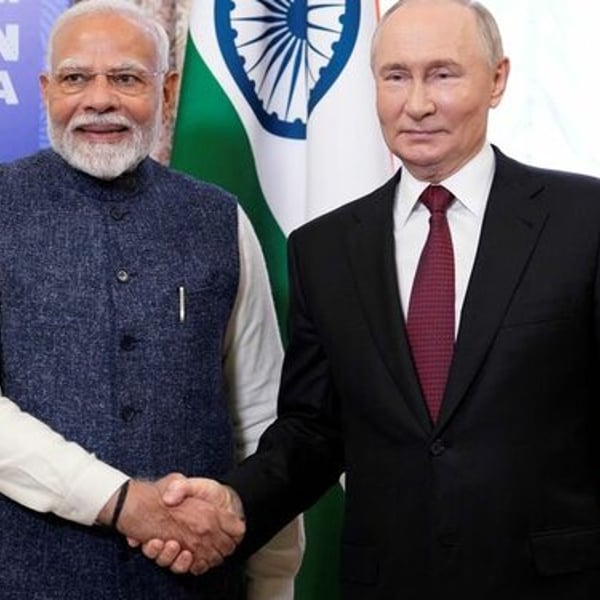Translated by
Nazia BIBI KEENOO
Published
April 25, 2025
As tensions between the U.S. and China persist, NGOs warn that mounting cost pressures from brands could jeopardize hard-won progress in protecting the rights of textile workers.
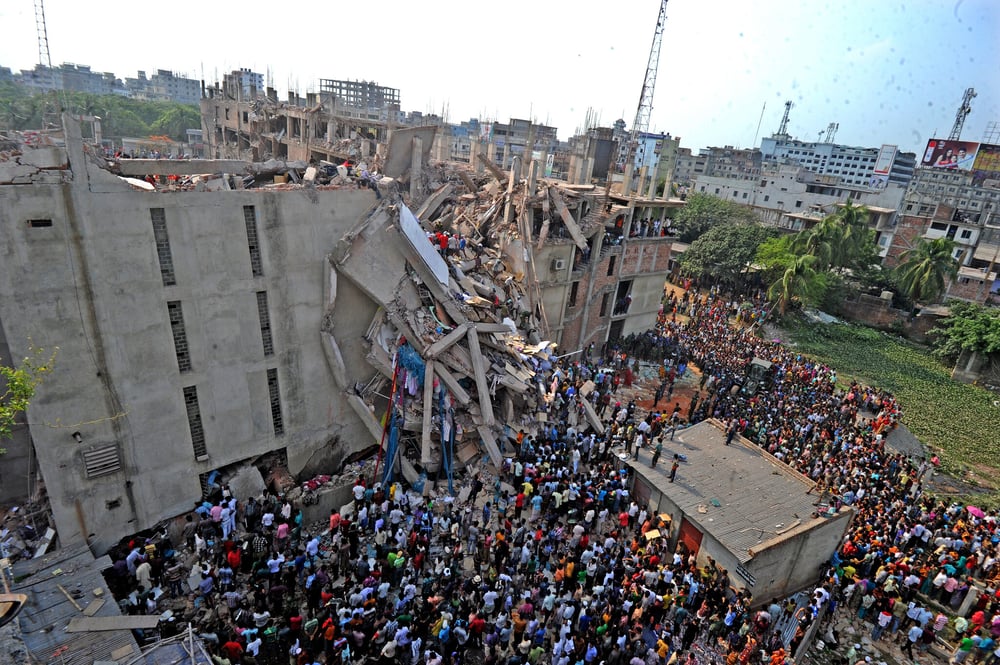
The Clean Clothes Campaign raised this concern on April 24, marking exactly twelve years since the Rana Plaza garment factory collapse in Dhaka, Bangladesh. The disaster claimed 1,138 lives and sparked a global outcry over labor conditions in factories serving Western markets.
“All additional costs resulting from U.S. tariff policies should be absorbed by companies that have the means to do so, rather than passed down to the most vulnerable links in the supply chain,” stated the Clean Clothes Campaign.
The NGO, along with its French affiliate Collectif Éthique sur l’Étiquette, called on companies not to repeat the mistakes made during the pandemic, when major apparel groups prioritized profitability by suspending payments and canceling orders without notice, often leaving suppliers unable to pay their workers.
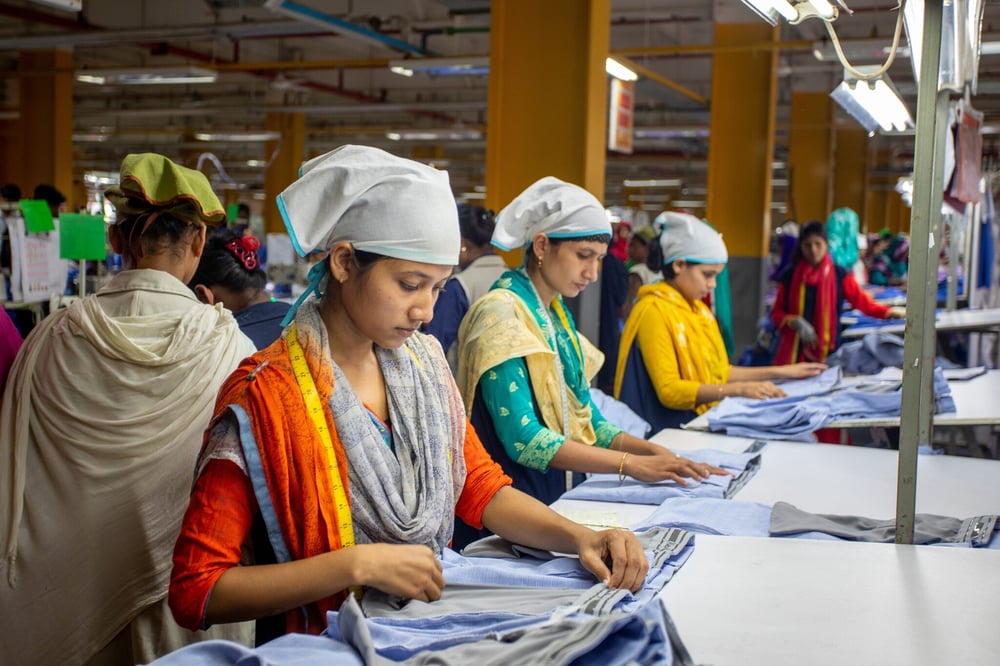
“The first signs of the old reflex to exploit the situation by cutting wages and rolling back workers’ rights are already visible,” the NGOs noted, citing companies such as Gap, Walmart, and Levi’s. These brands have reportedly begun demanding price cuts or pressuring suppliers to absorb the full cost of tariffs.
Observers have also noted that several governments are now openly considering lowering minimum wages in anticipation of potential production relocations. Signs of strain are mounting across textile supply chains, particularly among the largest suppliers to the U.S. after China.
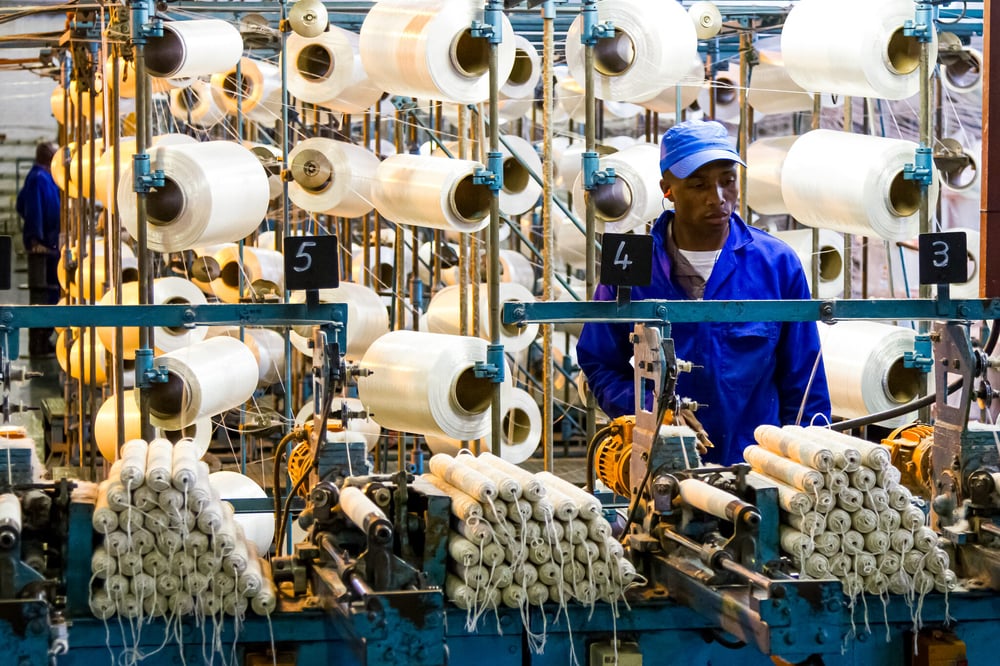
Vietnam is among the first to feel the pressure, with its economic balance threatened by U.S. tariffs that have not been lifted but only suspended. India’s jewelry sector is also feeling the impact. Meanwhile, Bangladesh—the second-largest apparel supplier to Europe—fears losing the fragile stability of its textile industry.
For their part, Sri Lankan manufacturers are talking about the potential loss of several thousand jobs if the announced surcharges are applied, while Burma is appealing to Washington’s “indulgence” regarding its textile production. But the effects of Donald Trump’s trade war are not just of concern to Asian industries: African textile producers are also fearful of a slaughter within their industry.
Copyright © 2025 FashionNetwork.com All rights reserved.
